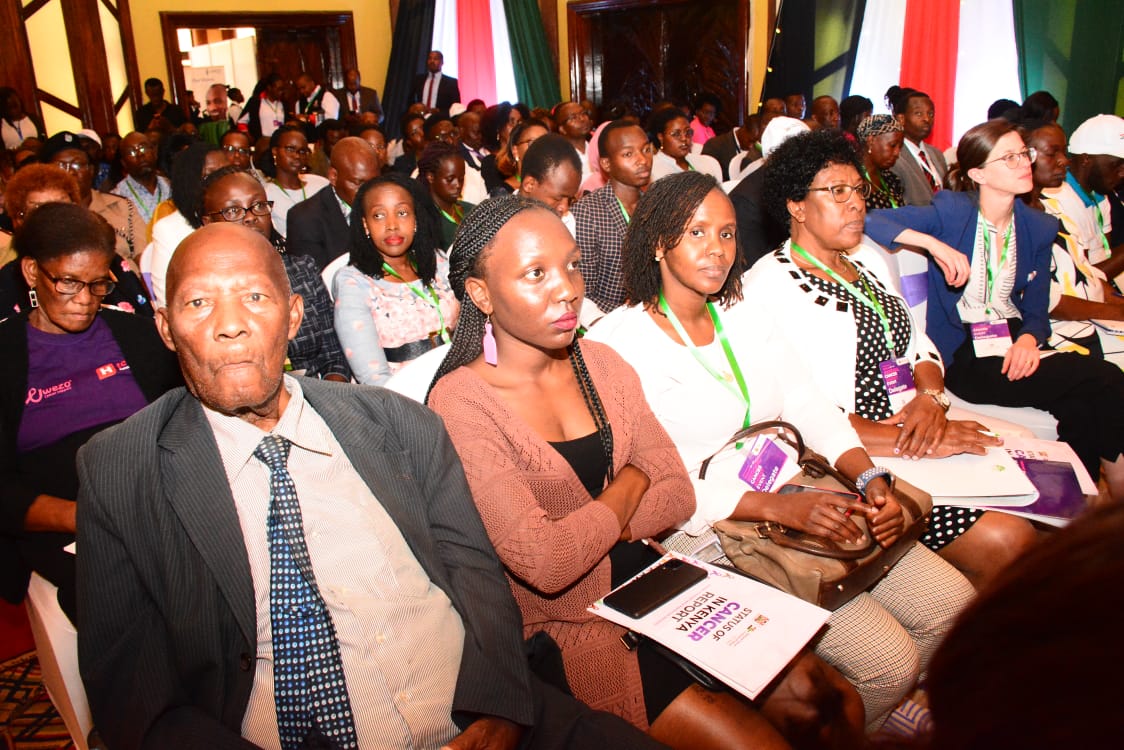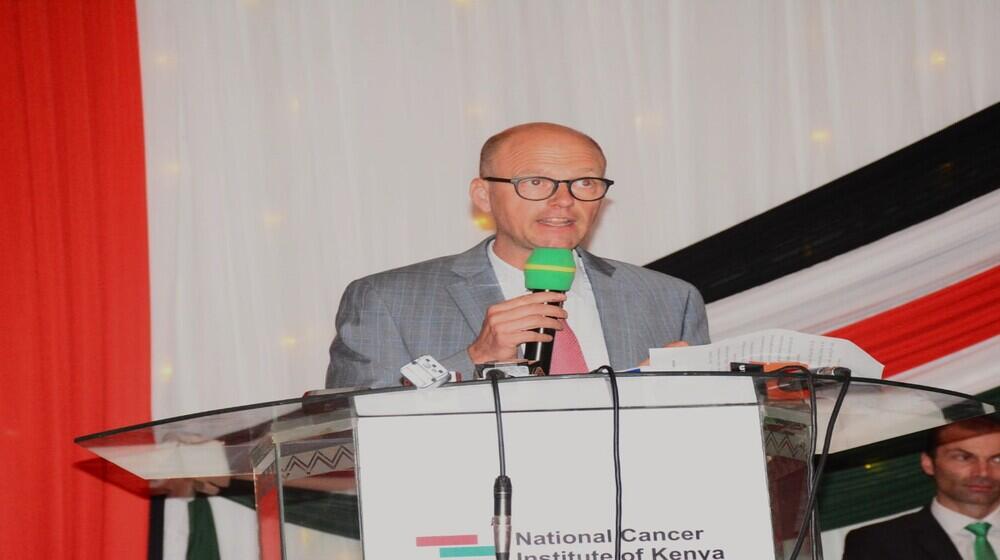As the third leading cause of death in Kenya, cancer is a major public health concern, placing a great burden on families, communities, and the health system. “In 2020, Kenya reported 42,000 new cancer cases and 27,000 cancer-related deaths,” said Kenya Health Cabinet Secretary Susan Nakhumicha. “Notably, nine women die every day due to cervical cancer.”
The Cabinet Secretary was speaking at the first-ever National Cancer Summit organized by the National Cancer Institute (NCI), with support from UNFPA and partners in the private, public, and non-profit sectors. The event also marked the launch of the Status of Cancer in Kenya Report 2022/2023, which revealed that breast, cervical, prostate, esophagus, and non-Hodgkins lymphoma are the five most prevalent cancers, account for nearly half (48 percent) of the cancer burden in the country.
Notably, cervical and breast cancers, which are reproductive cancers affecting women, contribute to 23%, of all cancer-related deaths in the country. Addressing summit participants, UNFPA Kenya Anders Thomsen noted that as the United Nations agency for sexual and reproductive health and rights, UNFPA is committed to supporting the government of Kenya and partners in alleviating the strain that reproductive cancers place on the public health system.
“UNFPA has a unique role particularly in dealing with the prevention of cancers related to the reproductive life cycle, particularly cervical cancer,” said Mr. Thomsen. “This type of cancer can be eliminated with the adoption of proven high-impact preventive interventions such as the HPV vaccine. Vaccinating girls and women before sexual debut, and therefore before exposure to HPV infection, provides an excellent opportunity to decrease the incidence of cervical cancer over time,” he noted.


participants at the National Cancer Summit.
Mr. Thomsen congratulated the government of Kenya for progress made in the fight against cancer, including the allocation of resources from the national budget towards cancer response, and the establishment of cancer treatment centers in public health facilities that aim to bring life-saving services closer to the population. He further commended the government on the planned rollout of a community health workers programme that targets to deploy 90,000 community health workers who will play a critical role in raising awareness on cancer prevention and treatment in the country.
UNFPA supports the government of Kenya through the Ministry of Health in ensuring that women and girls have access to sexual and reproductive health information and services to safeguard against not only reproductive cancers but also exposure to HIV infection and teenage pregnancy, all of which can hinder them from reaching their full potential. Between 2013–2015 UNFPA supported the Ministry of Health to roll out a pilot HPV vaccination program in Kitui county and the subsequent development of the reproductive tract cancer control programmes and guidelines. Additionally, UNFPA has supported the training of healthcare workers on the screening and treatment of early lesions and contributed to the procurement and distribution of cryotherapy machines to over 300 primary healthcare facilities across the country.
“We remain committed to supporting the Ministry of Health in ensuring the women and girls receive life-saving sexual and reproductive health services that are critical to the attainment of the sustainable development goal and Kenya’s vision 2030,” noted Mr. Thomsen.


